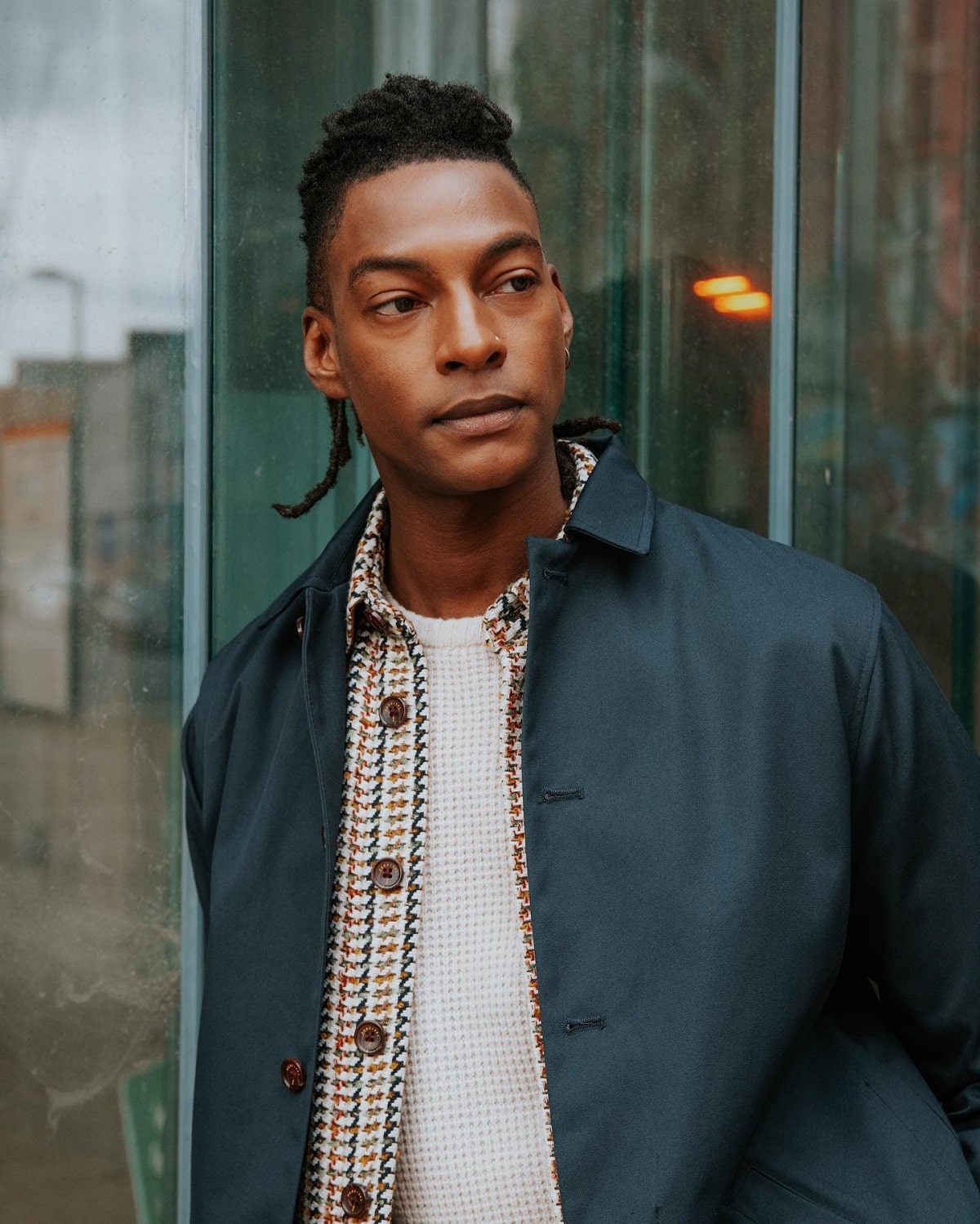1
HOME > Beauty >
HOW YOUR SLEEP COULD BE AFFECTING YOUR SKIN & HAIR
Written by Zoe Louise Thomlinson in Beauty on the 20th February 2023

Do you think you get enough sleep every night? The average man needs at least 7-9 hours of sleep daily to function properly. Your sleep is one of the most important things that impact your personal health. Sleep deprivation can significantly raise the risk of chronic illnesses such as obesity or diabetes. The cognitive impairment from lack of sleep is also really negative for your brain and can massively impact your productivity. However, how could your sleep be affecting your physical attributes? Lack of sleep affects all of your organs, as sleep helps to let your body rest. Your skin is the largest organ you have, and it is just as likely to be affected by sleep deprivation as all of your other organs. Your sleep is also fundamental for regular hormone production in your body, which could also affect the health of your hair. No amount of cosmetic products can fix a bad sleep schedule. However, there are ways you can manage damage to your skin or hair caused by lack of sleep.
How Sleep Affects Your Skin
Your skin is the biggest organ on your body, usually covering an average of 20 square feet. Without regular, good-quality sleep, your skin can start to become very damaged. Many people begin to notice an increase in fine lines, pigmentation, and reduced elasticity of the skin. This can result in the skin looking dull and feeling rough. This is caused by the skin’s inability to rejuvenate itself through lack of sleep. One of the major reasons that sleep deprivation results in duller skin is collagen. Collagen is vital for keeping our skin soft and healthy. Sleep deprivation may affect the body’s natural production of collagen, meaning your skin is bereft of vital components. Collagen is the number one most important thing when it comes to your skin’s health.

Each stage of the REM cycle is important when it comes to your skin’s health. During a full night’s sleep, you should cycle through each stage. The first stage lasts about 3 hours and is the lightest mode of sleep. The first stage allows the pituitary gland to produce somatotropin, otherwise known as the human growth hormone. This hormone contributes to the maintenance of youthful, healthy skin. The second stage, otherwise known as deep sleep, is important due to the melatonin it allows the brain to produce. Melatonin is an antioxidant which promotes relaxation and sleep and is vital for protecting the skin from damaging agents. The REM period of sleep is one of the most important ways your skin is rejuvenated. This is because this sleep stage affects the levels of cortisol in your bloodstream. Cortisol is otherwise known as the stress hormone- managing your cortisol levels is amazing for your health. Cortisol can be very damaging for the skin, as it triggers inflammation, which can result in acne and make your skin more sensitive. Cortisol can also contribute to collagen production being inhibited, which means your skin won’t have access to the rejuvenating properties that cortisol brings to the skin. Interestingly, lack of sleep can also cause dry skin. We naturally perspire more in our sleep, and lack of sleep can mean we don’t get the hydration we need. Sleep deprivation can also mess up your natural PH balance, which can mean your skin dries out. Sleep is one of the most important things when it comes to your skin health.

How Sleep Affects Your Hair
Poor sleep quality leads to a number of health issues, which can have a knock-on effect on the health of your hair. For example, lack of sleep can result in high-stress levels, lowered energy levels, and a poor immune system. All of these things can result in your hair looking dull and lifeless. In some cases, the stress can push your hair follicles into premature ‘resting’ and ‘shedding’ stages, which means your hair can fall out. Improving your sleep can result in you getting better at stress management, which could work wonders for the health of your hair. Lack of sleep can affect protein synthesis in the hair, which could negatively impact the strength of your follicles. This could result in weaker, thinner hair. Sleep deprivation also affects the release of general enzymes and growth hormones, which means that your hair could be brittle, and slow to grow. This could result in you having more split ends. The hormonal effect of sleep deprivation is perhaps the most devastating factor when it comes to hair loss. Your hormones play a massive part to play when it comes to preventing premature baldness. Melatonin helps your body regulate your sleep cycle, and also stimulates healthy growth in your body. If your melatonin levels are subpar, this could result in hair loss. But how can you improve your sleep in order to improve your skin and hair?

Improving Your Sleep
It can seem difficult to improve your sleep, especially if you work a lot and are generally a busy person. However, there are small things you can do to improve your sleep on a day-to-day business and try and recover your sleep debt. Firstly, you should try to sleep at optimal temperatures. It has been proven that people get better sleep at lower temperatures, so maybe investing in air conditioning or sleeping with a window open might result in you getting better sleep. Secondly, you should avoid blue light in the hour before you go to sleep. Blue light (given off by TVs, phones and computers) stimulates the brain and makes it stay awake. Having time away from electronic devices could make it much easier for you to get a good night’s sleep. Natural light is also a huge factor when it comes to disrupting a good night’s sleep. As we enter the summer months, the days are longer, so it might be easier for natural light to filter in through windows to wake you up and affect your sleep quality. Investing in a pair of blackout curtains may be the perfect remedy here, and may allow you to massively improve your sleep quality. Making your bedroom comfortable may also help you get a better night’s sleep. Investing in a better quality mattress and comfy bedding may aid your sleep by making sure you sleep through the night and fall asleep more quickly.

However, there are supplements you can take if you’re concerned about the health of your skin and hair while you’re recovering from sleep debt. Moisturisers that have added collagen might really help your skin recover from sleep deprivation. Hair products that have added proteins may help to recover damaged hair. However, one of the key things you can do is to reduce your cortisol levels, and that means reducing your stress. Taking regular breaks, relaxing and talking to your friends about your stress might be one of the best ways you can reduce your cortisol levels. Light exercise can also help to reduce your cortisol levels. Reducing your cortisol levels may also result in a better night’s sleep! Your sleep is one of the most important factors when it comes to the health of your skin and hair, and for the rest of your health too - so follow these tips to get a good night’s sleep!
Trending
2
3
4
5
6
7
8
9
10









